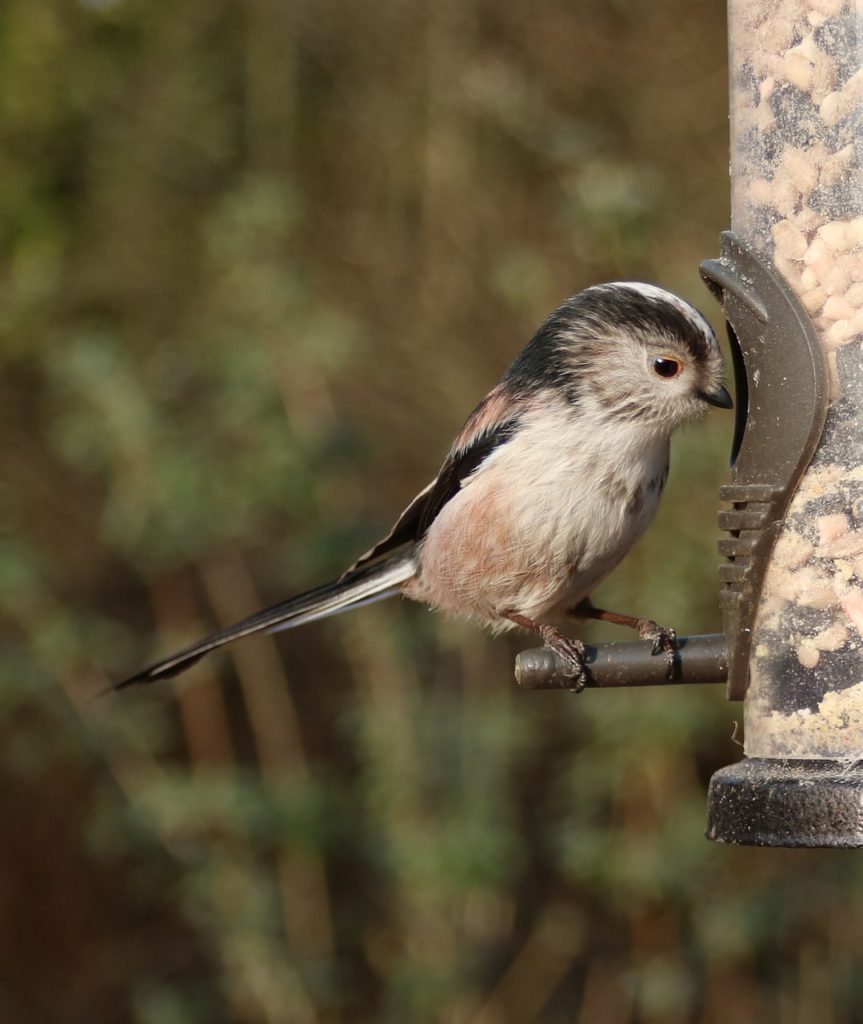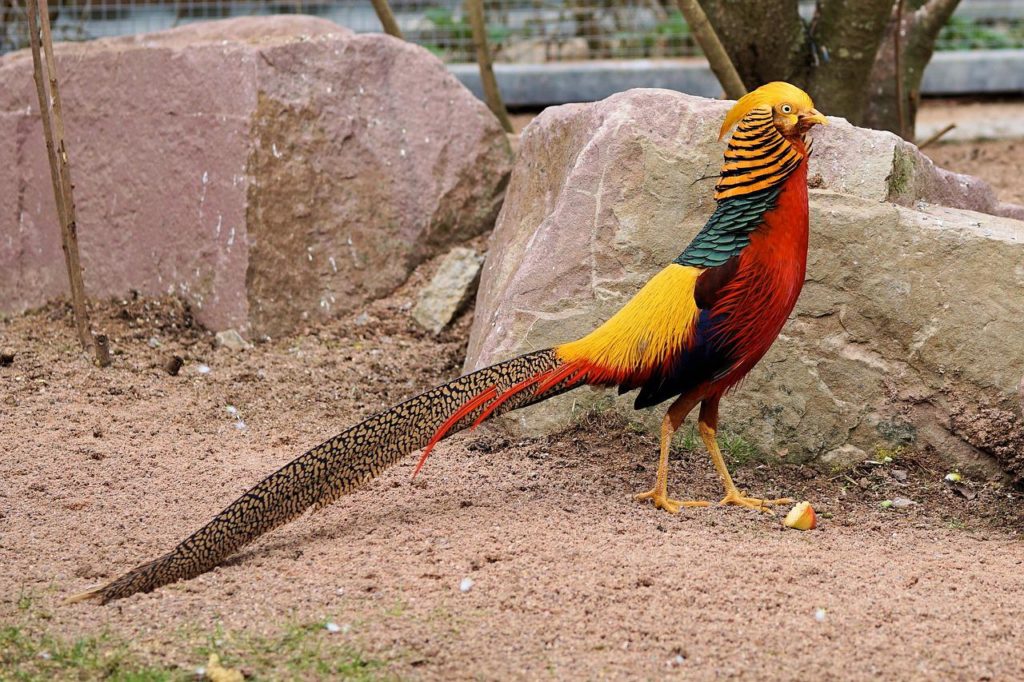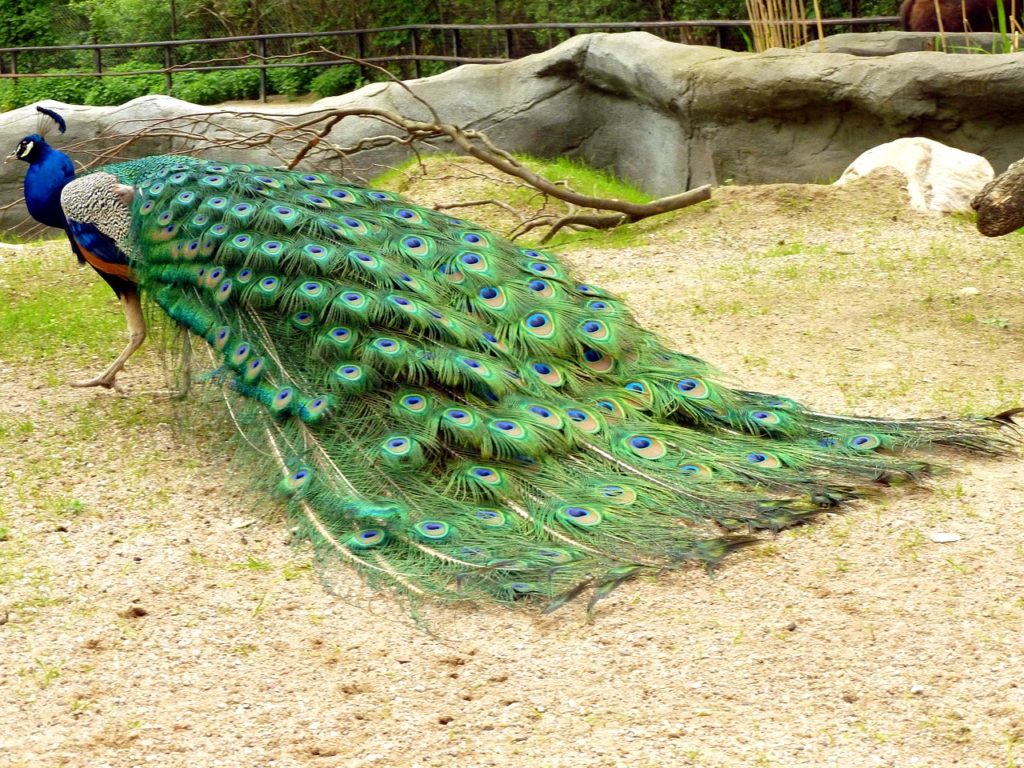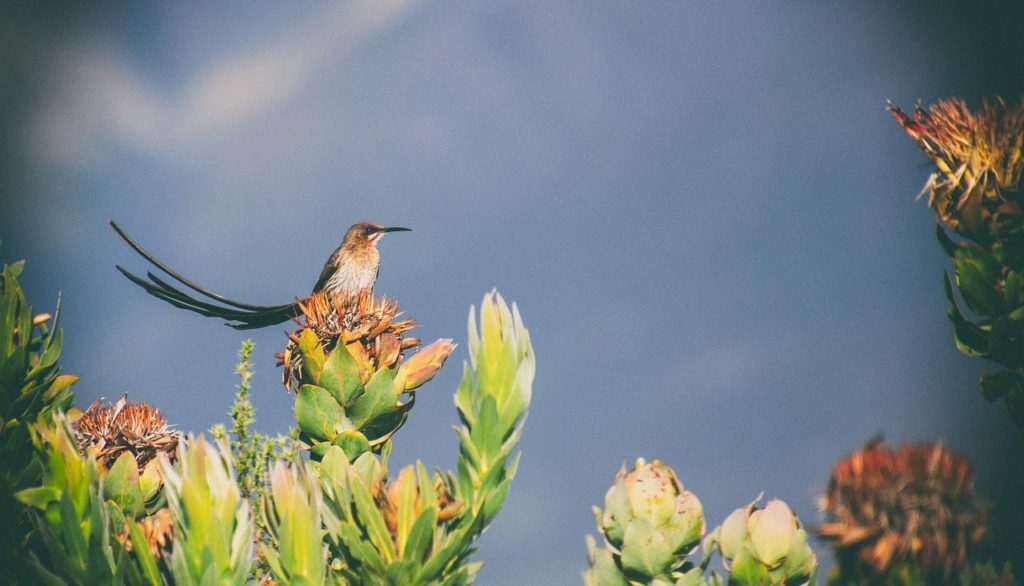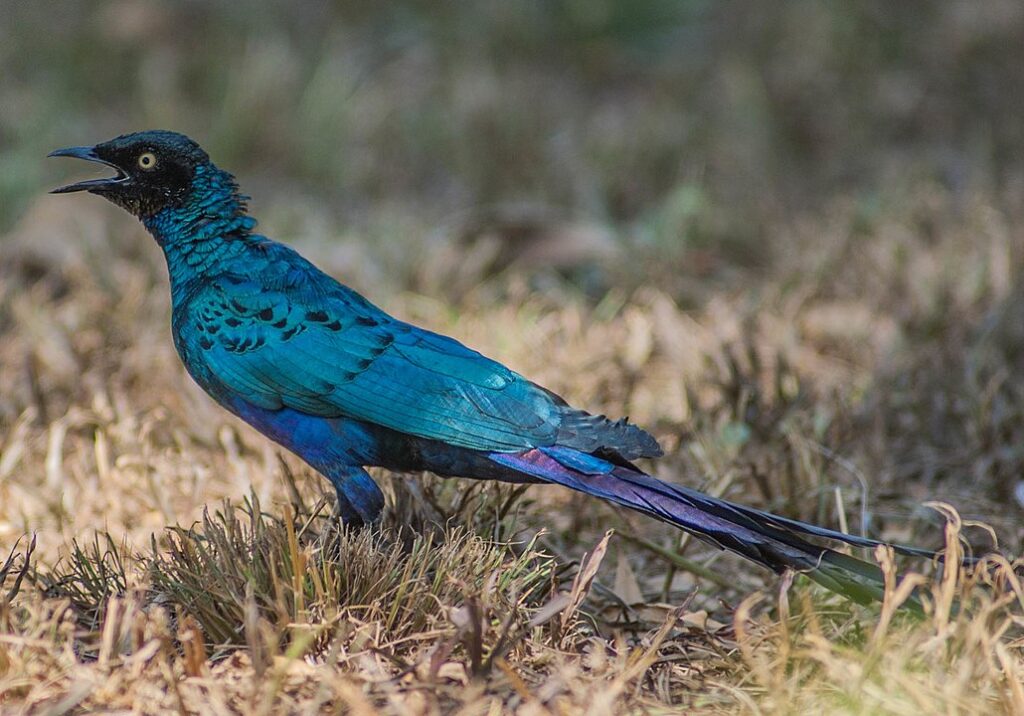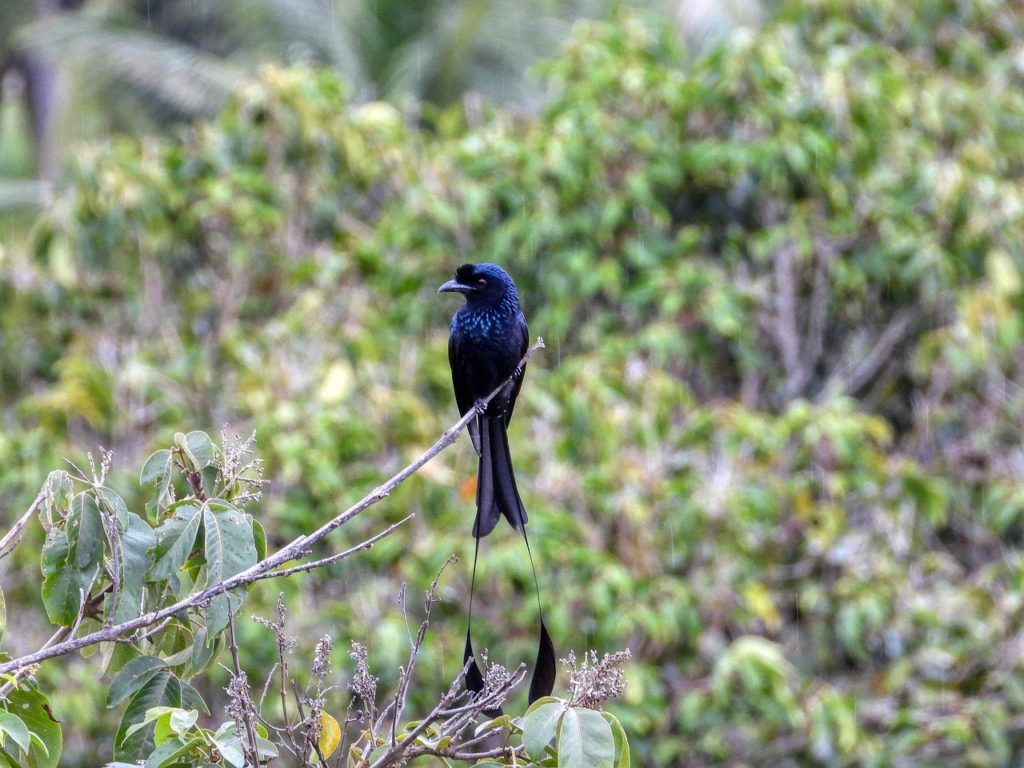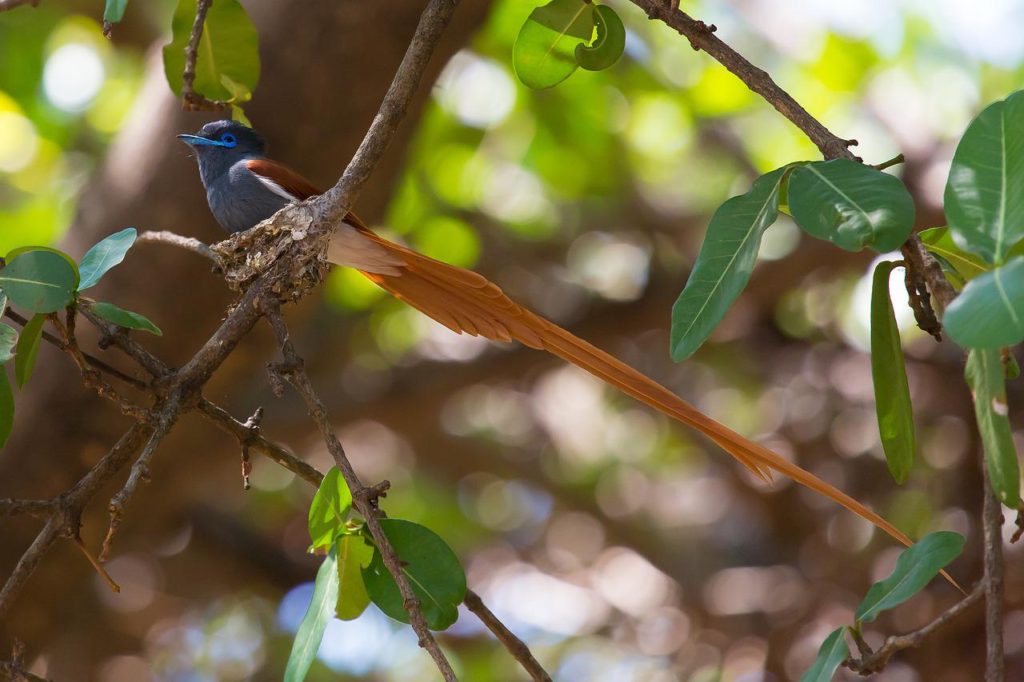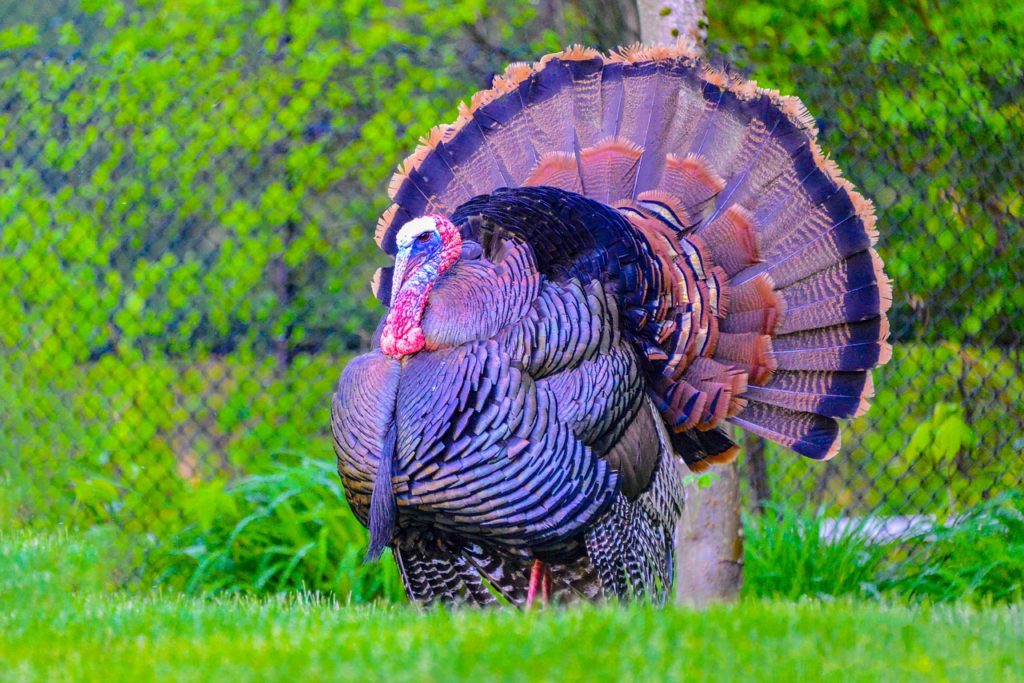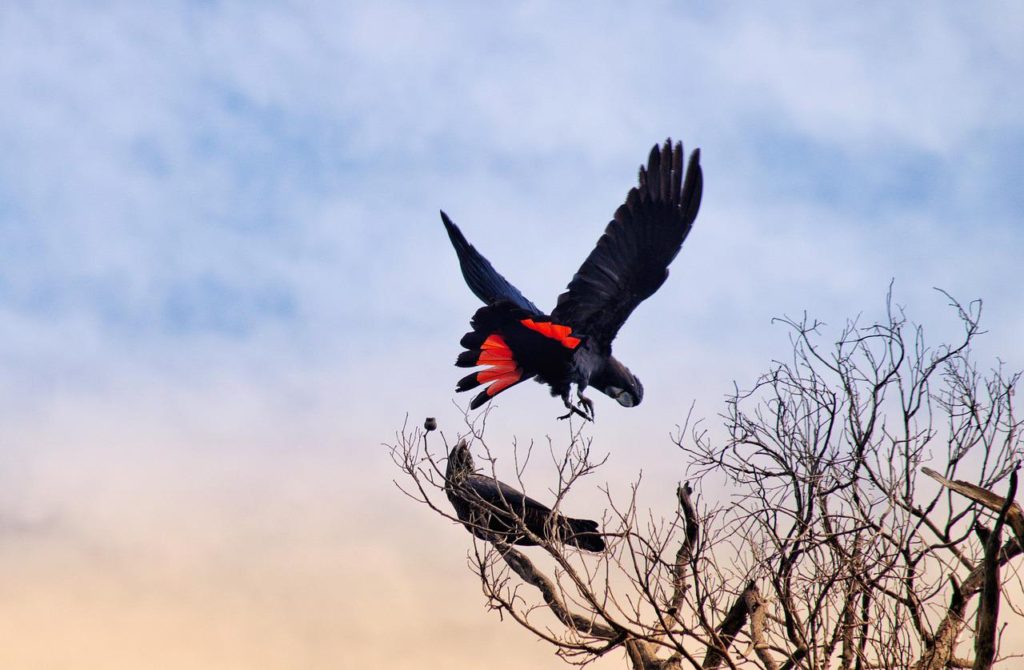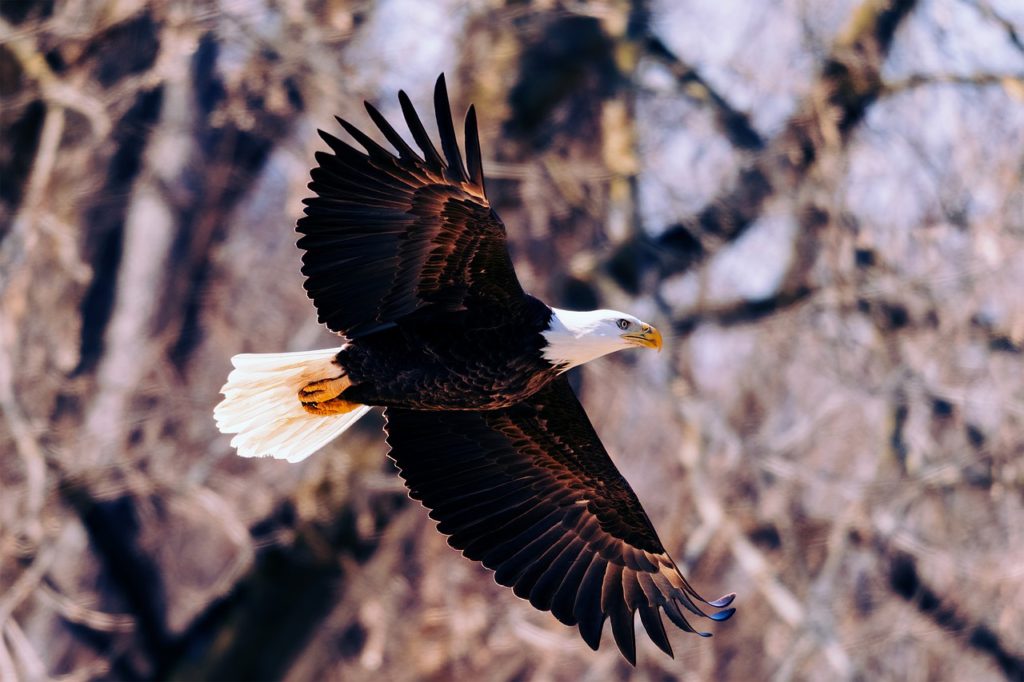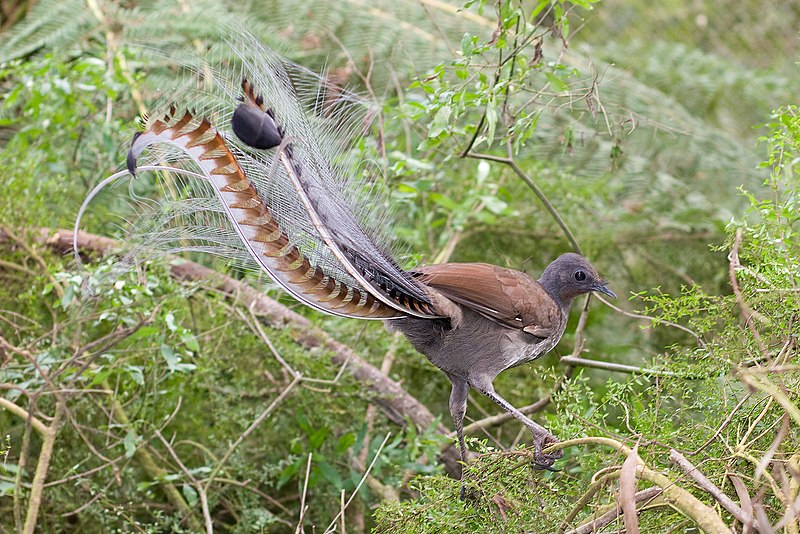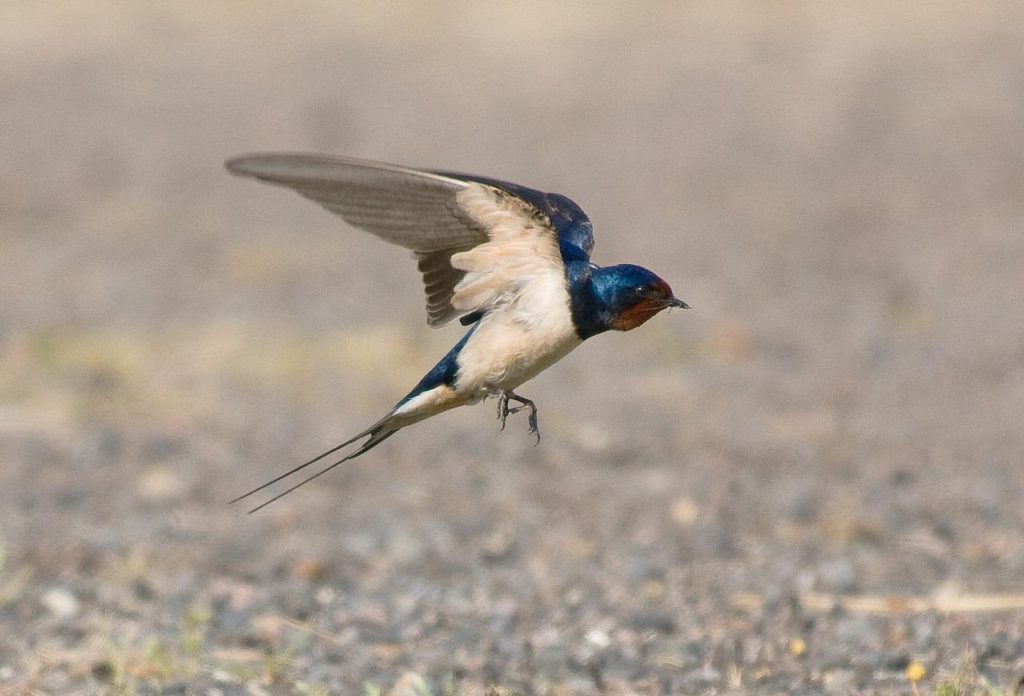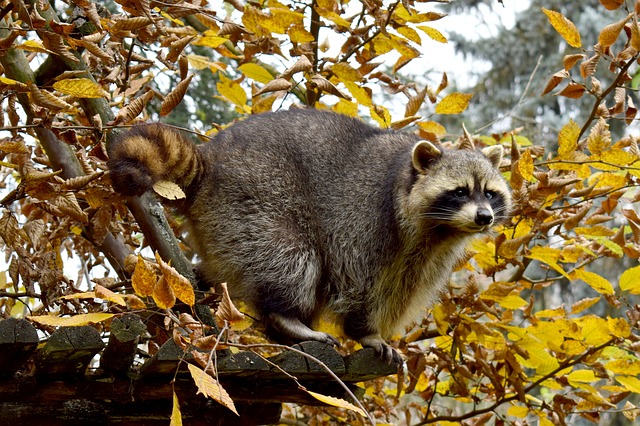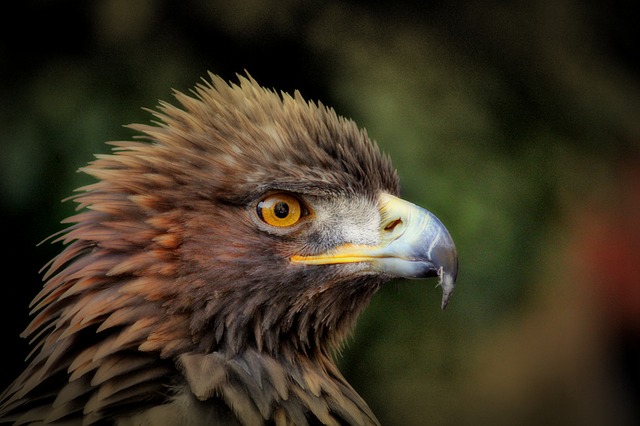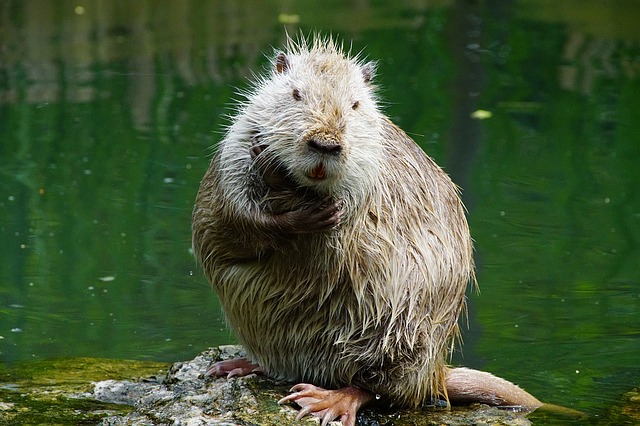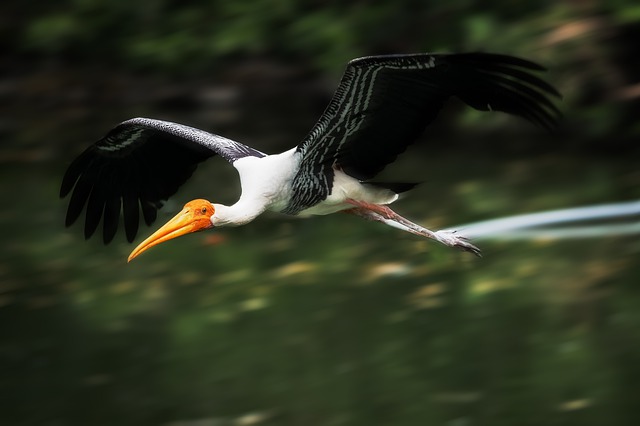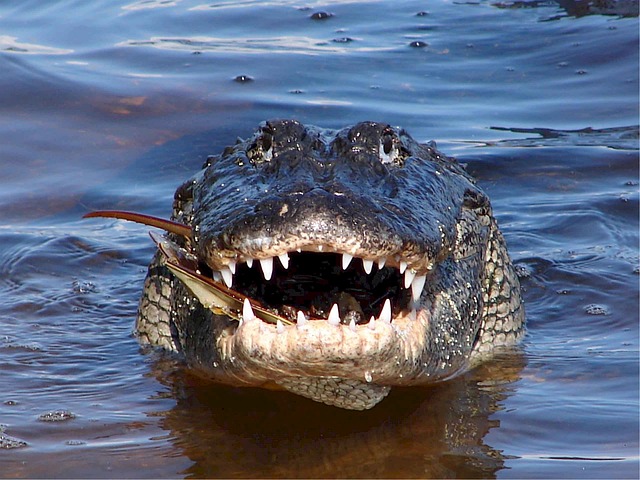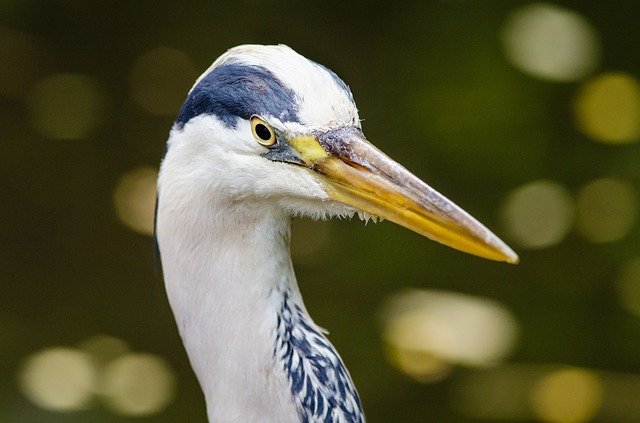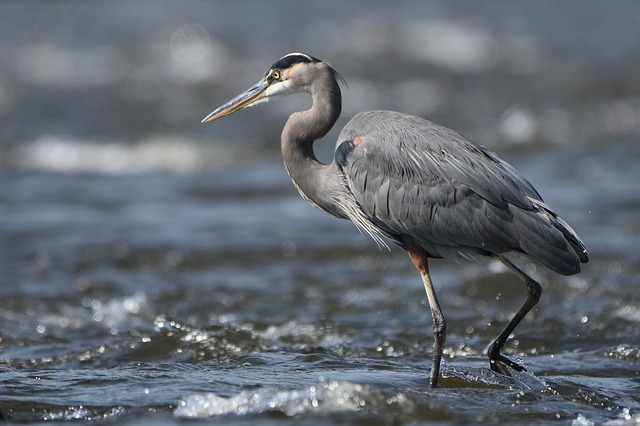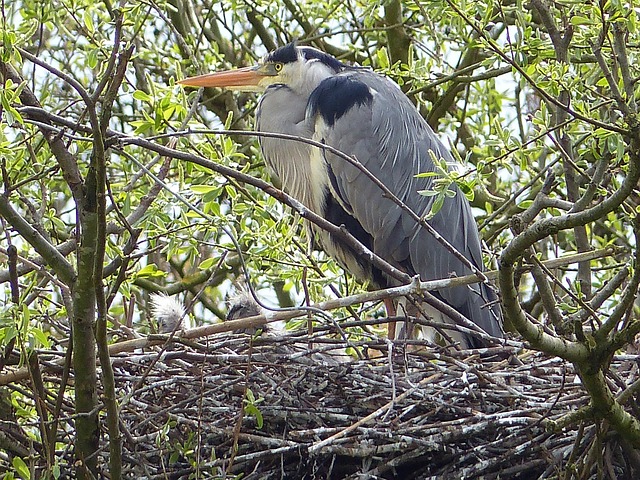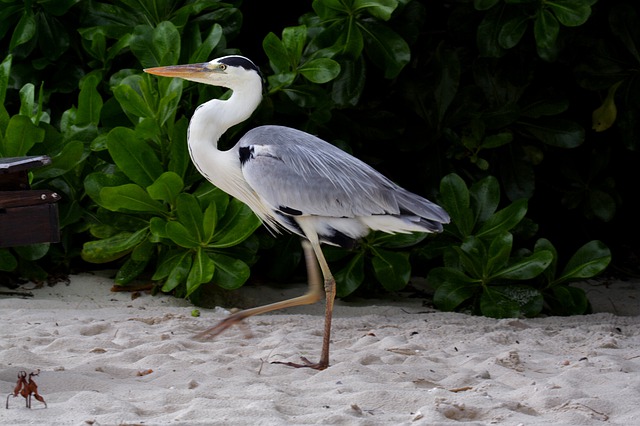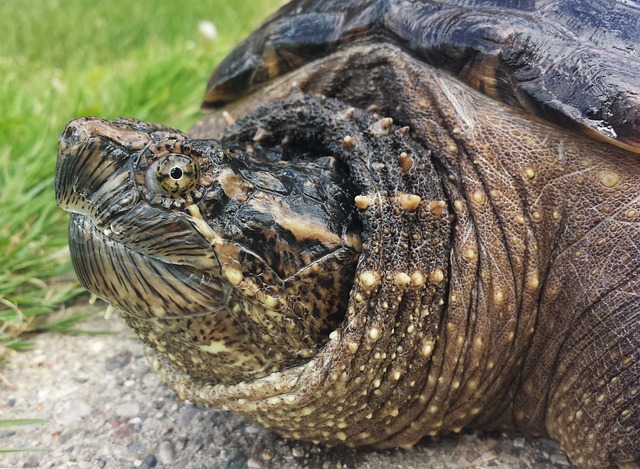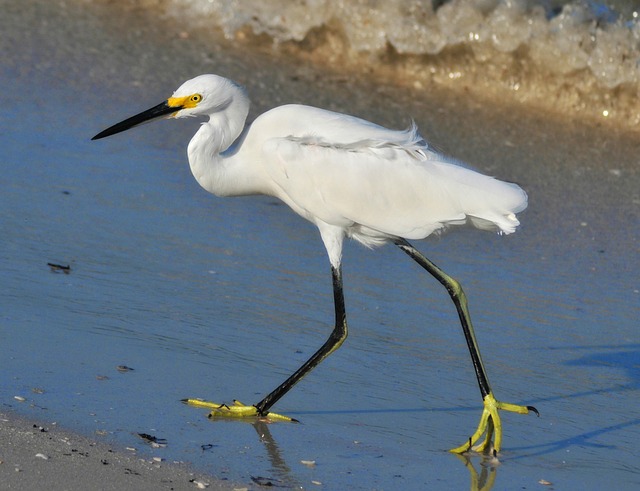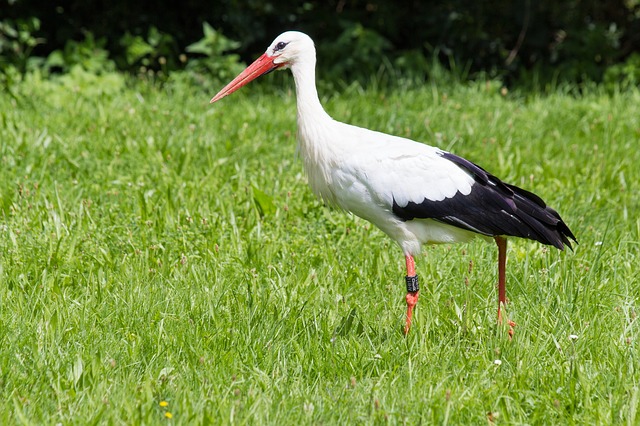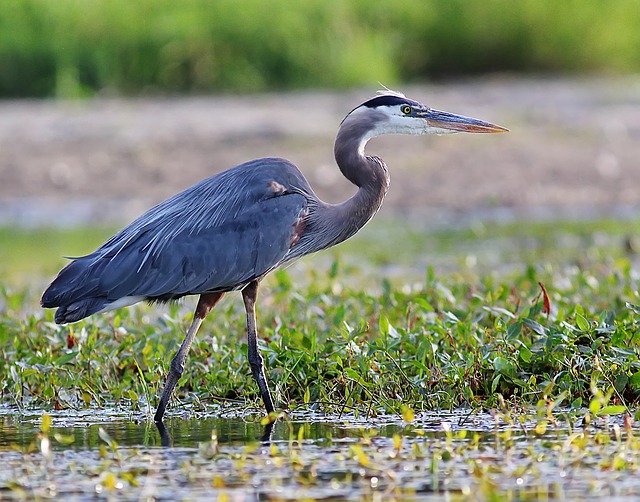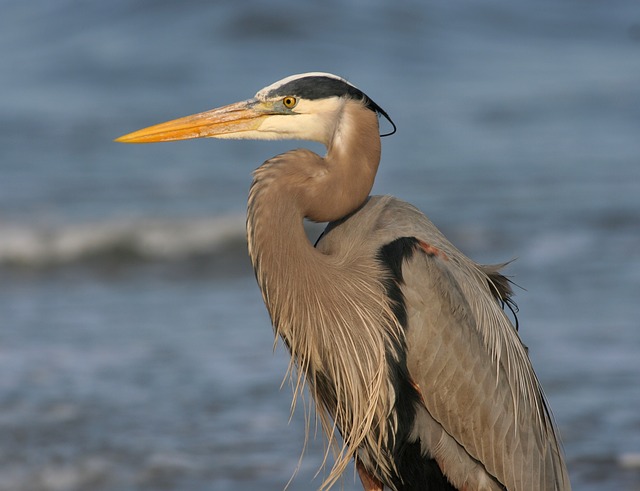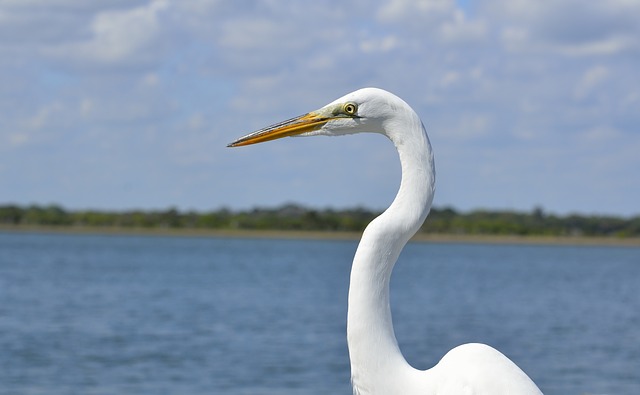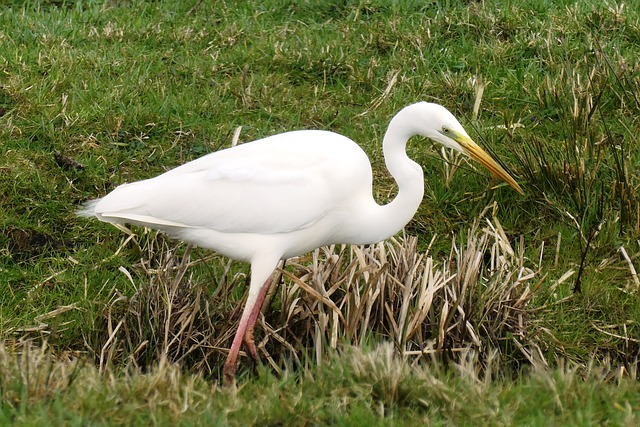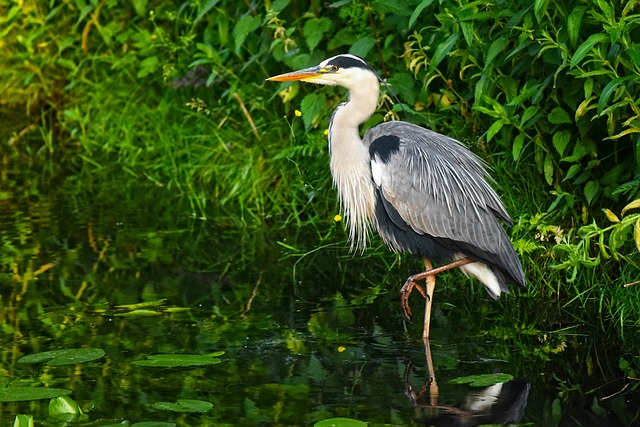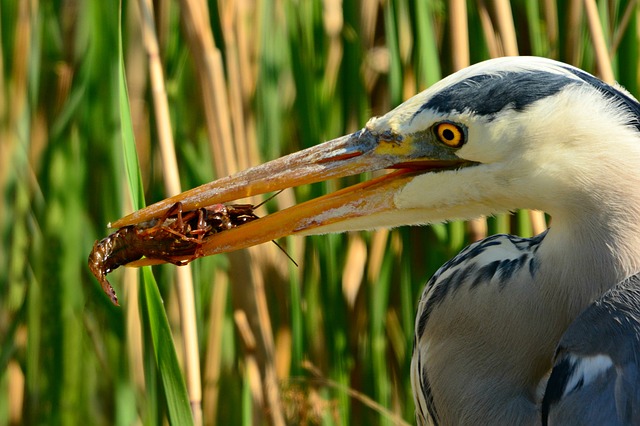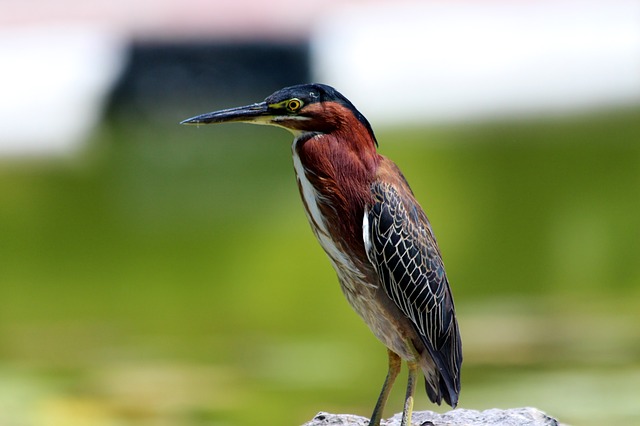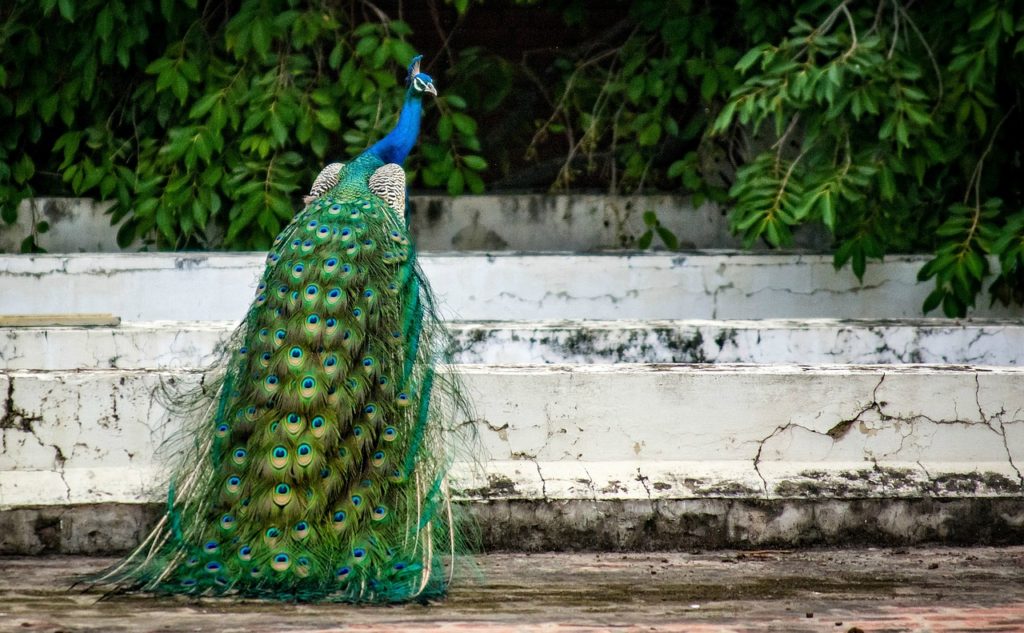
Just like birds themselves, birds’ tails come in a wide range of shapes and sizes. And some tails of course are more interesting and remarkable than others. The following are birds with tails that never fail to impress!
Long-Tailed Tit
The long-tailed tit, also known as the long-tailed bushtit, is one of the most common garden birds in the UK and while seen year-round they are most often spotted during the winter months. They are both tiny and adorable. And because they have an extra long narrow tail and a round body, they are often compared to looking like a flying lollipop!
Golden Pheasant
Male golden pheasants are brightly colored beautiful birds with long tails. In fact, their tails are so long that they make up around two-thirds of their entire length. They also sport an impressive golden yellow crest on their heads. While a native of western China, the stunning appearance of the golden pheasant has made it one of the most commonly kept pheasant species in captivity around the world.
Peafowl
Male peafowl are known as peacocks while females are called peahens. They are the largest member of the pheasant family and there are two species: the Indian peafowl (also called the blue peafowl) and the green peafowl. Peacocks are more dramatically colored and have longer tails, than peahens.
The elongated feathers that are attached to a peacock’s tail are known as a “train”. The train feathers are a metallic green and sport iridescent blue eyes. The train is displayed by the peacock to attract a mate. Peahens prefer the males with the longest trains and biggest displays.
Cape Sugarbird
These South African birds with long tails are important pollinators. They mainly feed on nectar and have long specialized beaks and elongated brush-tipped tongues to help them reach it. They also eat insects such as aphids, flies, and grasshoppers. This species’ most distinguishing feature is the long tail of the male birds.
Their tail is about twice the length of their body. In contrast, the females only have tails that are about half the length of their bodies. Cape sugarbirds can be distinguished from other similar species by the spot of yellow under their tails.
Long-Tailed Glossy Starling
As its name suggests the long-tailed glossy starling has an exceptionally long tail. Both males and females are attractive iridescent birds with long glossy purple tails. Their tail is more than half the length of their entire body.
So while they average around 21 inches in length about 13 of those inches are made up of their tail. That long tail is used for balance as the birds forage for food. Long-tailed glossy starlings are native to sub-Saharan Africa.
Peterichman/Wikimedia Commons/CC BY 2.0
Greater Racket Tailed Drongo Bird
At first glance, greater racket-tailed drongo birds may look like birds with 2 tails. That’s because they have 2 twisted tail extensions that look similar in appearance to rackets, from which they get their name. These Asian birds aren’t known only for their unique tail, but also for their highly-skilled mimicry. Greater racket-tailed drongo birds are able to perfectly mimic the calls of many other bird species in their environment.
African Paradise Flycatcher
While these noisy birds may have short legs and a medium size body, adult males are known for their highly elongated central tail feathers. Their tails are more than twice the length of their bodies.
And while their long streamers may have the added benefit of helping human observers to locate the birds when in thick foliage, their long tails are actually used to help attract a mate during their courtship displays. Females lack the long tail streamers as their tails are only moderate in length.
Wild Turkey
Wild Turkeys are the wild ancestors of the domestic turkey. They are north America’s biggest upland game bird. In addition to having bald heads and beards, male turkeys have impressive fan-shaped tails that are made up of feathers of equal size.
Like many other birds with fan-shaped tails, the adult males referred to as “toms” will spread their tails in a display to attract females. Known as “strutting,” during this grand courtship display males will also drag their wing tips on the ground, gobble, and erect their body feathers.
Red-Tailed Black Cockatoo
This large black cockatoo hails from Australia and is often seen (and heard as they are quite noisy) in large flocks. Adult males have bright red tail panels which make for a stunning contrast to their black plumage. Because of their beauty and rarity this species is known for fetching high prices in the pet trade. In captivity with the proper care, red-tailed black cockatoos are known to reach the age of 100 years old.
Bald Eagle
In North America, there is no other bird as recognizable as the Bald Eagle. Adult birds can be differentiated immediately from other species. That’s because they are birds with white heads and white tails that contrast their darkly colored bodies not to mention their yellow legs and feet.
Luckily for the species today it has rebounded from its past population decline which was a direct result of ingesting fish contaminated by the pesticide DDT.
Superb Lyrebird
The superb lyrebird gets its name from its spectacular tail which looks similar to a lyre. However, both females and younger males lack that impressive tail.
As a top-notch mimic, this species not only copies the songs of other birds but can also accurately reproduce the sounds of anything from a ringing phone to a barking dog. These large brown pheasant-like birds can be found in southeastern Australia and southern Tasmania.
Barn Swallow
Barns swallows are recognizable small birds with forked tails and blue upper parts. They are actually the most widespread of any swallow species. And they like to nest in open structures such as barns and stables, but also under wharves and bridges.
The birds’ long forked tails enable them to be fast and agile enough to catch insects in the air. The tails of the male barn swallows are longer. And in some subspecies, the females are more attracted to males with longer streamers, as they tend to be healthier and live longer than those with shorter tails.
Start Shopping for Birding Gear!
Raccoon Pictures
Raccoons are easily recognizable by their black face mask and ringed tail. And there are many fascinating things about this intelligent nocturnal species. So we’ve compiled some of the best raccoon pictures to show you just how amazing and unique they are. Raccoon...
Eagle Pictures
Eagles are large powerful raptors with sharp talons and beaks. These apex predators are typically at top of the food chain and there are many interesting things about them. So we’ve compiled some of the best eagle pictures to show you just how amazing they are. Bald...
Nutria Pictures
Nutria are large semi-aquatic rodents from South America. In the United States where they were originally imported for the fur industry, they are an invasive species. Despite their pest status, there are many interesting things about them. So here are some of the best...
Stork Pictures
Storks are tall wading birds with long legs and necks. These amazing birds have many fascinating things about them. And we’ve compiled some of the top stork pictures to help show you just how interesting and beautiful they are. White Stork The white stork has a body...
Alligator Pictures
The American alligator is a large predatory reptile that inhabits the southeastern United States. It’s a fascinating animal with many interesting things about it. And we’ve collected some of the best alligator pictures to help show you just how amazing they are....
How Long Do Great Blue Herons Live?
The life expectancy of birds is known to be closely related to their size. So as the biggest heron species in North America, how long do great blue herons live? The average life expectancy for these large birds is around fifteen years. However, surviving their first...
Where Do Great Blue Herons Live?
The great blue heron is considered to be the most widespread heron in North America. So exactly where do great blue herons live? Here’s what you’ll want to know. Great Blue Heron Range The great blue heron is found throughout most of the North American continent. In...
Where Do Great Blue Herons Nest?
While many of us have seen great blue herons their nesting habits often remain a mystery to most people. That’s because they purposely nest in hard-to-reach places. So where do great blue herons nest? Here’s the answer. A Colony Nester Typically great blue herons nest...
Do Great Blue Herons Migrate?
Do great blue herons migrate? This is something many people wonder about, especially if they’ve seen a heron during the cold winter months. And the answer is both yes and no. Here’s what you’ll want to know. Great Blue Heron Range The great blue heron has a large...
Great Blue Heron Pictures
Few species of birds are as tall, elegant, and attractive as the great blue heron. So we’ve compiled some of the best great blue heron pictures for you to admire and help you to learn more about this amazing bird! Great Blue Heron Head The head of the great blue heron...
What Do Snapping Turtles Eat?
Many people are familiar with the fact that snapping turtles have an incredibly strong bite. They use their strong jaws and sharp beak not just for defense but also for catching food. So what do snapping turtles eat? Here's what you'll want to know. Snapping turtles...
Birds That Look Like Egrets
Egrets are predatory birds that hunt and live in a range of both freshwater and saltwater habitats. These birds are usually white, and have S-shaped necks, long legs, and dagger-like beaks. However, they are often mistaken for several other types of birds that look...
Birds That Look Like Storks
Storks are large wading birds with robust bills and long legs. These tall carnivorous birds are well-known for their wide wingspans and also for building huge nests. However, they are often confused with several other bird types that have a similar appearance. So...
Birds That Look Like Herons
Herons are tall birds with long slender legs and necks. And they often wade in the water when hunting for food. Yet there are several other types of birds that may be mistaken for them. To make things more confusing many of these birds also spend time in the water and...
Great Blue Heron Facts
The great blue heron is named for its size and the grey-blue color on its wings, stomach, and back. This species has many fascinating things about it. So here are the top great blue heron facts. It's The Largest North American Heron The great blue heron is a big bird...
Are There White Herons?
Are there white herons? This is something many people wonder especially after seeing a tall all-white bird. The answer is yes! And here’s a fast introduction to them. A White Color Morph Most people are familiar with the great blue heron, a large predatory and...
Great White Heron Facts
While many people are familiar with the great blue heron, they are often surprised to find out that there’s also a great white heron. There are many things you’ll want to know about this stunning bird. So here are the top great white heron facts. The Great White Heron...
What Animals Eat Herons?
Because of their size and long sharp beaks, it can be hard to imagine that herons have any natural predators. While they do, they definitely don’t have nearly as many predators as most other types of birds. So what animals eat herons? Predators Of Adult Herons For...
What Do Herons Eat?
Great blue herons are often seen slowly wading in shallow water hunting for food. You may have even spotted one of these large birds in your own backyard pond. This leaves many people wondering: “What do great blue herons eat?” And here’s everything you’ll need to...
What Do Green Herons Eat?
The green heron is a secretive and small heron species. What it lacks in size however it makes up for in intelligence. It is particularly well-known for how it uses its smarts when hunting for food. So what do green herons eat? Read on to find out. Meet The Green...
